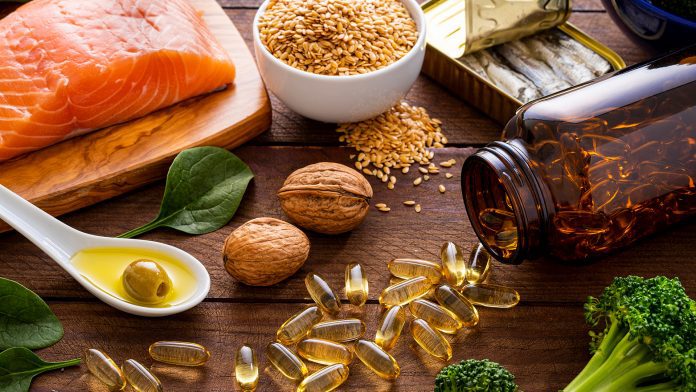
New research finds that 3 grams of omega-3 fatty acids daily, found in food and supplements, may help lower blood pressure.
Two omega-3 acids called docosahexaenoic acid (DHA) and eicosapentaenoic acid (EPA) are typically found in fatty fish and could potentially lower blood pressure. However, it is currently unclear the optimal dosage to have a therapeutic effect. The National Institutes of Health has established an adequate intake of omega-3 fatty acids for healthy people at 1.1-1.6 grams daily, depending on age and sex.
“According to our research, the average adult may have a modest blood pressure reduction from consuming about 3 grams a day of these fatty acids,” said study author Xinzhi Li, MD, PhD, assistant professor and program director of the School of Pharmacy at Macau University of Science and Technology in Macau, China.
The review is published in the Journal of the American Heart Association.
Analysing 71 clinical trials
To investigate the optimal dose of omega-3 to lower blood pressure, the researchers analysed 71 clinical trials published between 1987 to 2020. The studies examined the relationship between lower blood pressure and the omega-3 fatty acids DHA and EPA (individually or combined) in adults aged 18 and older, with or without high blood pressure or cholesterol disorders. Over 5,000 participants took dietary and/or prescription supplement sources of fatty acids for ten weeks on average.
Can omega-3 lower blood pressure?
The researchers found:
- Individuals consuming between 2 and 3 grams daily of combined DHA and EPA had reduced systolic and diastolic blood pressure by an average of 2 mm Hg, when compared to adults who did not consume omega-3 supplements.
- 3 grams daily of omega-3s decreased systolic blood pressure (SBP) by an average of 4.5 mm Hg for those with hypertension and about 2 mm Hg on average for those without.
- 5 grams daily of omega-3s, SBP declined by almost 4 mm Hg in individuals with hypertension and less than 1 mm Hg on average for those without.
- Similar differences were seen in people with high blood lipids and amongst those older than age 45.
“Most of the studies reported on fish oil supplements rather than on EPA and DHA omega-3s consumed in food, which suggests supplements may be an alternative for those who cannot eat fatty fish such as salmon regularly,” Li said. “Algae supplements with EPA and DHA fatty acids are also an option for people who do not consume fish or other animal products.”
The US Food and Drug Administration (FDA) announced in June 2019 that it did not object to certain health claims that consuming EPA and DHA omega-3 fatty acids in food or dietary supplements may lower blood pressure and coronary heart disease. However, existing evidence is inconclusive and inconsistent.
Some limitations of the study include differences in blood pressure measurement techniques and whether the studies examined omega-3 intake from supplements or diet, which may affect the strength of the conclusions.
























